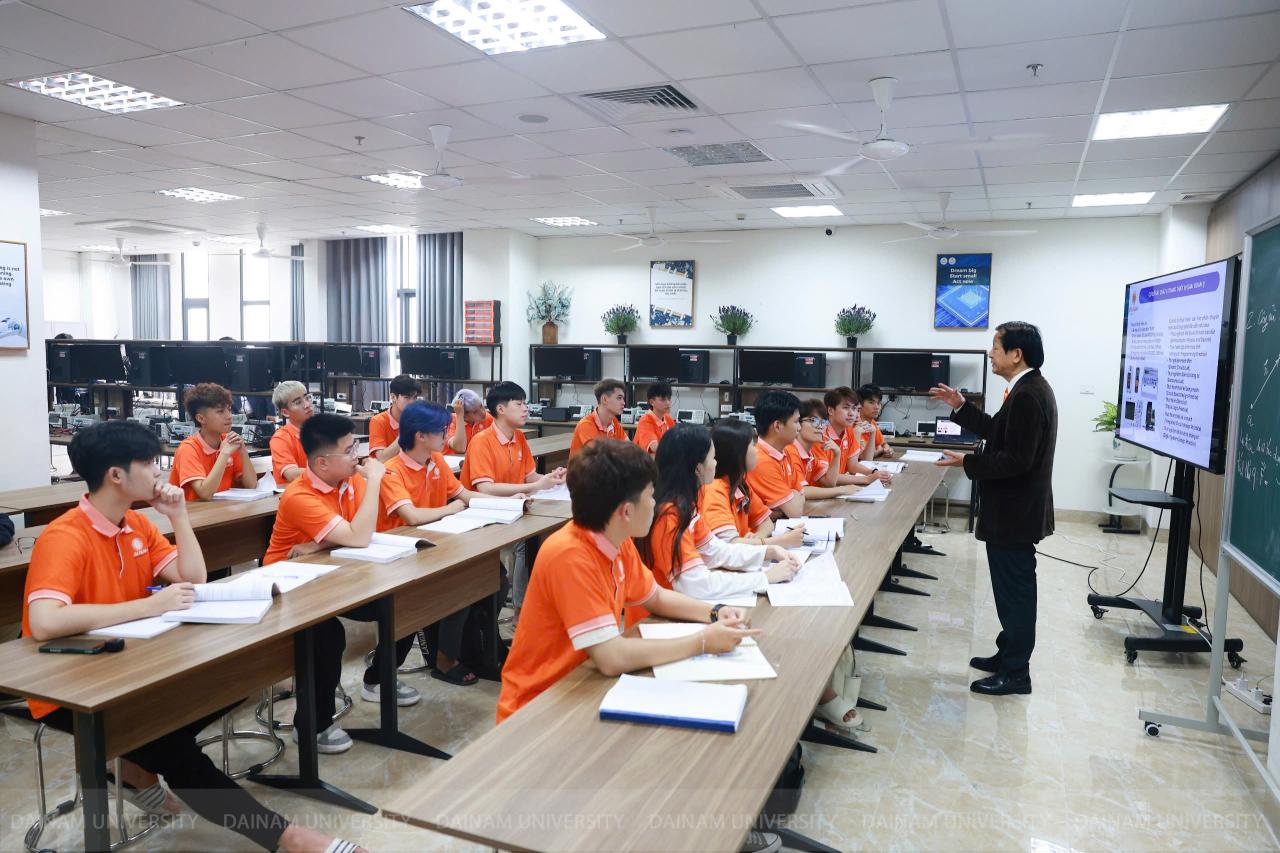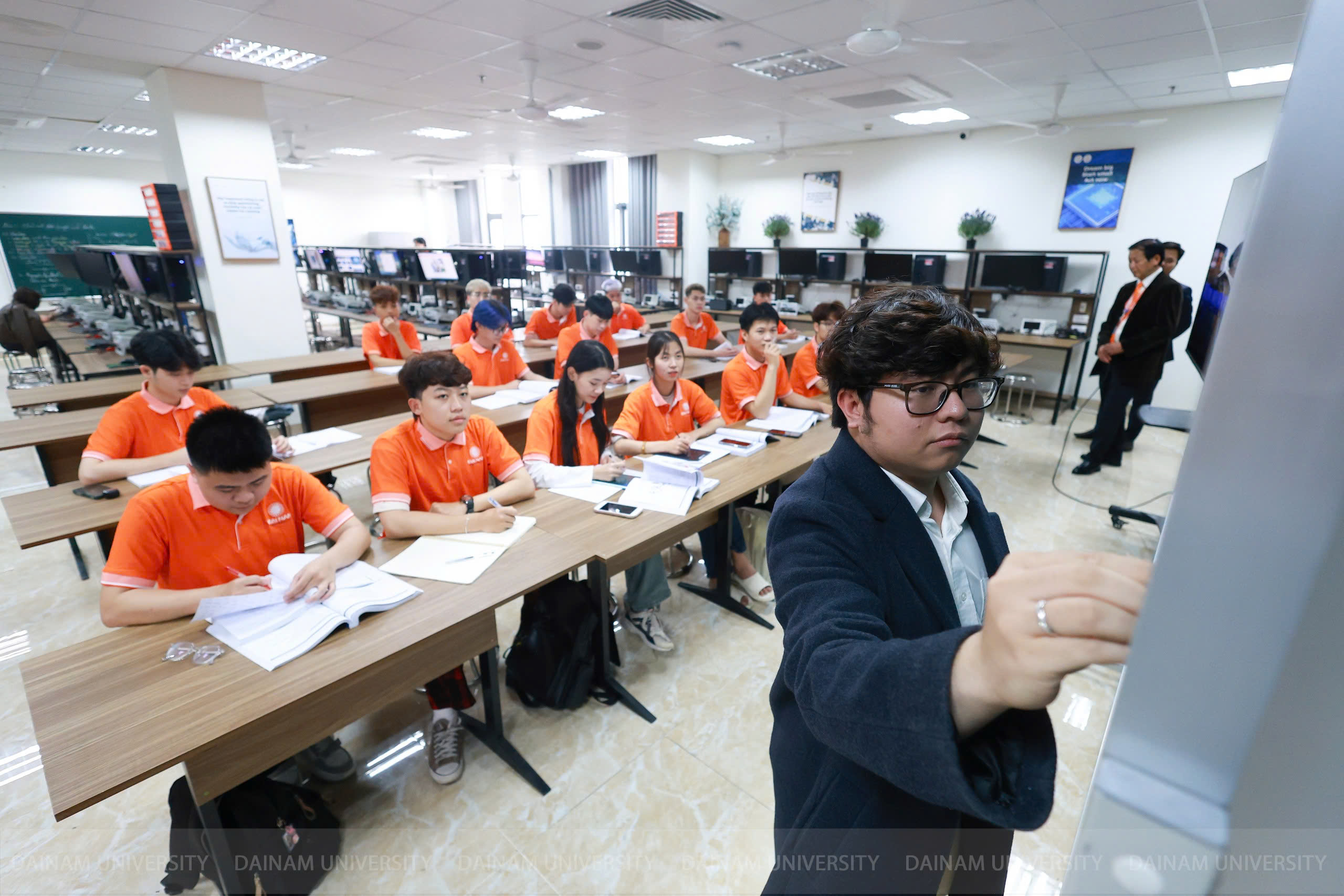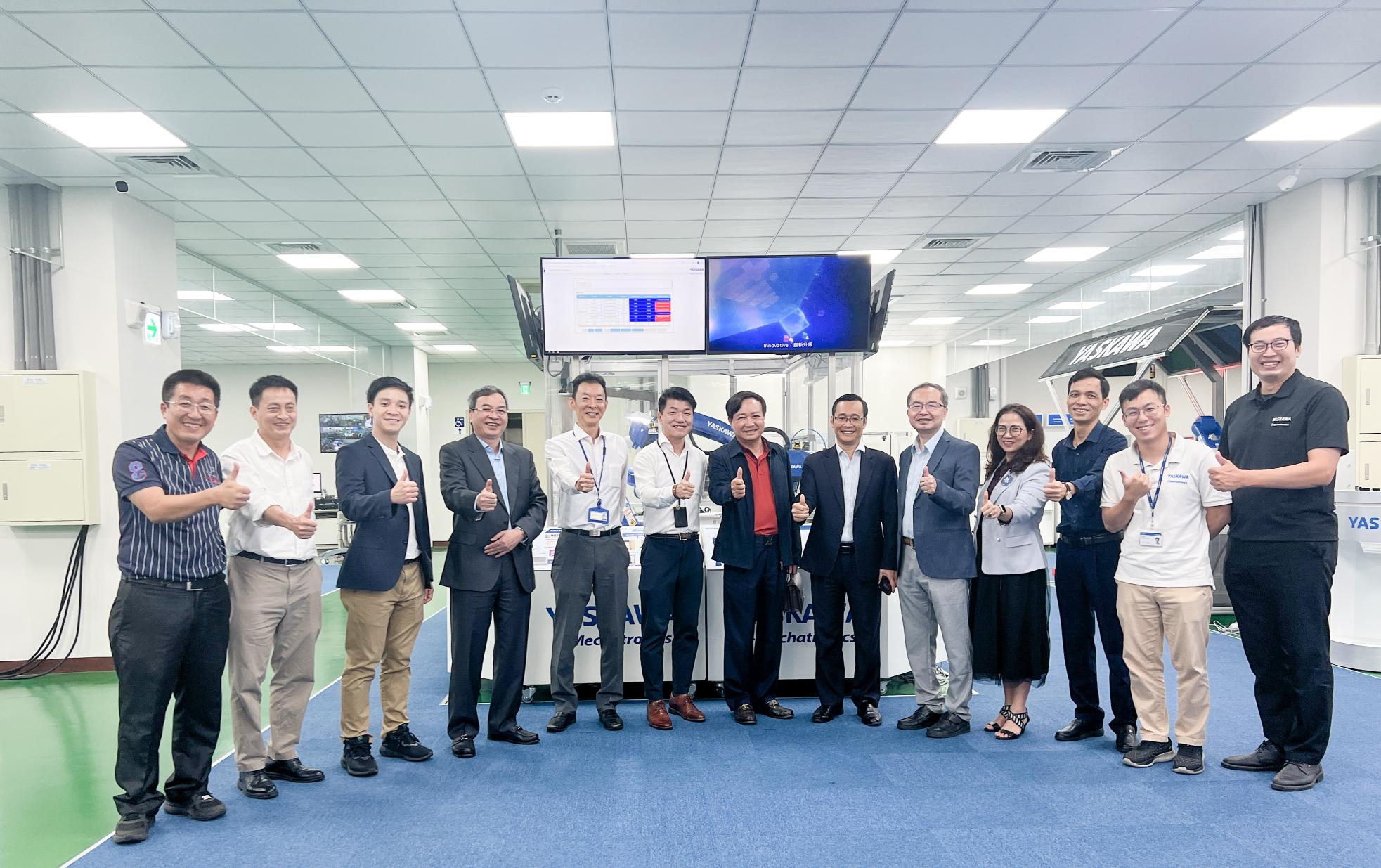This is a fundamental and key discipline in the Fourth Industrial Revolution, and one that is in high demand in Vietnam and other developed countries—particularly among FDI enterprises and leading technology corporations from Taiwan, South Korea, and Japan.
By pursuing this major, students will gain in-depth knowledge and skills in control and automation, microchips, semiconductors, and smart manufacturing systems, along with the ability to apply emerging technologies in real-world settings. It is an ideal choice for young people who are passionate about technology and engineering and aspire to work in international environments with attractive career prospects and competitive salaries.

By accessing an advanced training program, students can earn two bachelor's degrees simultaneously, benefit from attractive scholarship schemes supported by the Taiwanese government, and undertake high-paying internships at Taiwanese enterprises. Upon graduation, they have the option to pursue long-term careers in Taiwan or return to Vietnam to work for FDI companies. This distinctive pathway reflects Dai Nam University’s (DNU) unique approach to training talent in the field of semiconductor technology.
2+2 Joint Training Program
Under the 2+2 joint training program, students will study for two years at Dai Nam University and then complete an additional two years at universities of science and technology in Taiwan. Upon graduation, they will be awarded an engineering degree by the Taiwanese institutions. Graduates are required to work for semiconductor companies in Taiwan for two years, with a starting salary of no less than USD 1,000 per month.
3+1 Joint Training Program
Students will study for three years at Dai Nam University, followed by a fourth year at partner universities of science and technology in Taiwan, where they will also participate in paid internships at Taiwanese enterprises. Upon graduation, students will be awarded an engineering degree by Dai Nam University. Graduates have the opportunity to remain in Taiwan and work for leading semiconductor companies, with a starting salary of approximately USD 1,000 per month.
3+1+1 Joint Training Program
Students will complete three years of study at Dai Nam University, followed by one year of exchange at partner universities in Taiwan. Academic credits earned during the exchange year will be transferred back to Dai Nam University, allowing students to receive their undergraduate degree from DNU. Students will then continue with an additional year of study at the Taiwanese university to obtain a second official bachelor's degree. Graduates, awarded degrees from both institutions, will be eligible to work at semiconductor companies in Taiwan, with starting salaries exceeding USD 1,000 per month.


The high demand for human resources in the Semiconductor Technology industry is one of the key reasons why this field is highly sought after during university admission seasons. It is projected that in the next 5 years, Vietnam will need approximately 20,000 individuals with a university degree or higher in the Semiconductor Technology sector. By pursuing this field of study, students can be confident in securing employment immediately after graduation.
Graduates of the Control and Automation Engineering Technology program (specialized in Semiconductor Technology) can work at technology corporations, semiconductor manufacturing plants, and electronics factories both domestically and internationally, in positions such as:
Semiconductor equipment operation, maintenance, and installation engineer at modern factories and production lines.
IC and semiconductor chip design and development engineer.
Automation engineer for production systems, integrating robots and sensors in smart factories.
Technical expert, quality control specialist for high-tech products.
Research officer, lecturer, or technology transfer expert at research institutes or universities.
Additionally, students have the option to pursue Master's or Doctoral degrees either domestically or in developed countries such as Taiwan, South Korea, Japan, the United States, etc., and can work globally for major corporations such as TSMC, Intel, Samsung, LG, Foxconn, D-Link, and more.
The salary of engineers in the semiconductor and microchip industry increases steadily each year. According to surveys, recent graduates typically earn an after-tax salary ranging from 215 to 500 million VND per year. Engineers with more than 7 years of experience often earn double, with salaries exceeding 1.5 billion VND per year for positions requiring over 15 years of experience. It can be said that this is a highly attractive income for professionals in this field.

